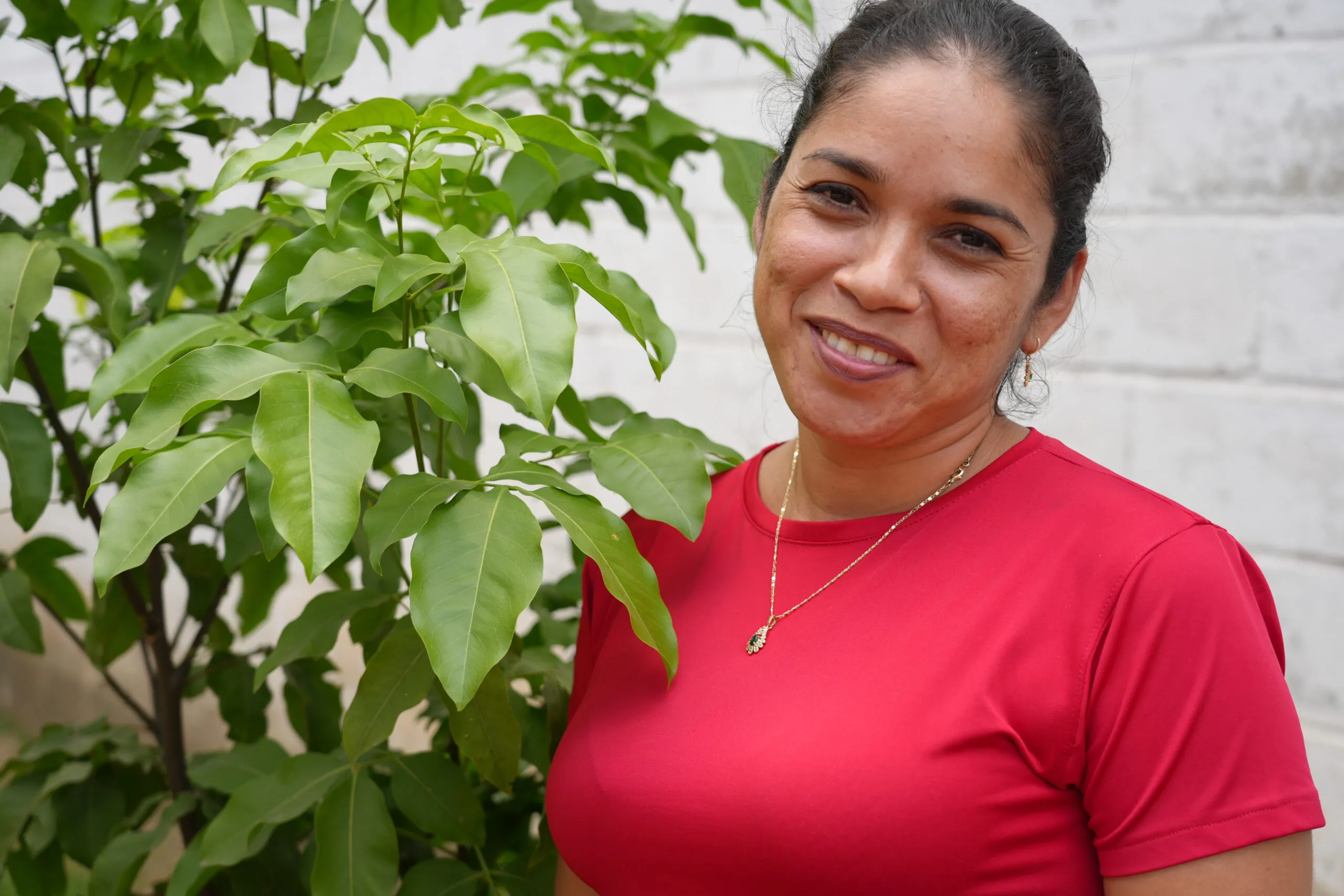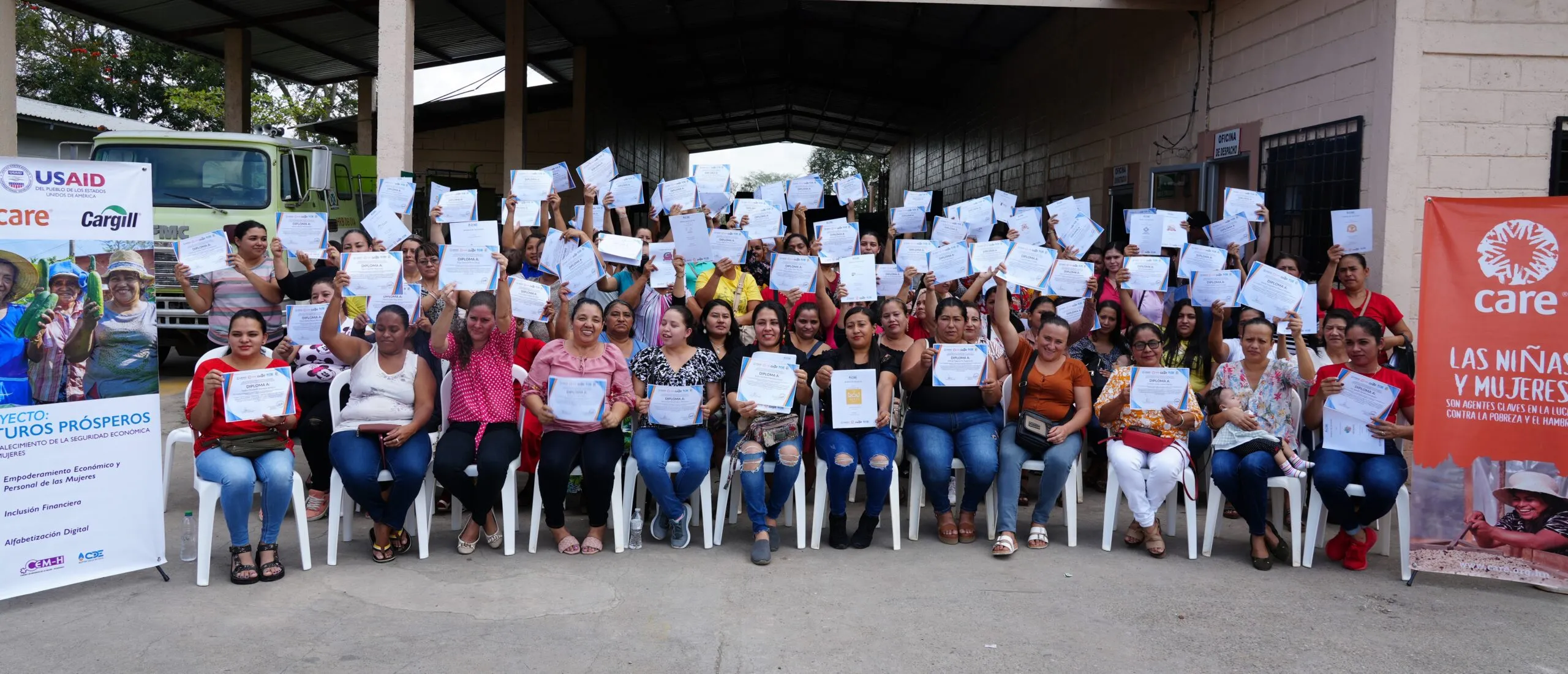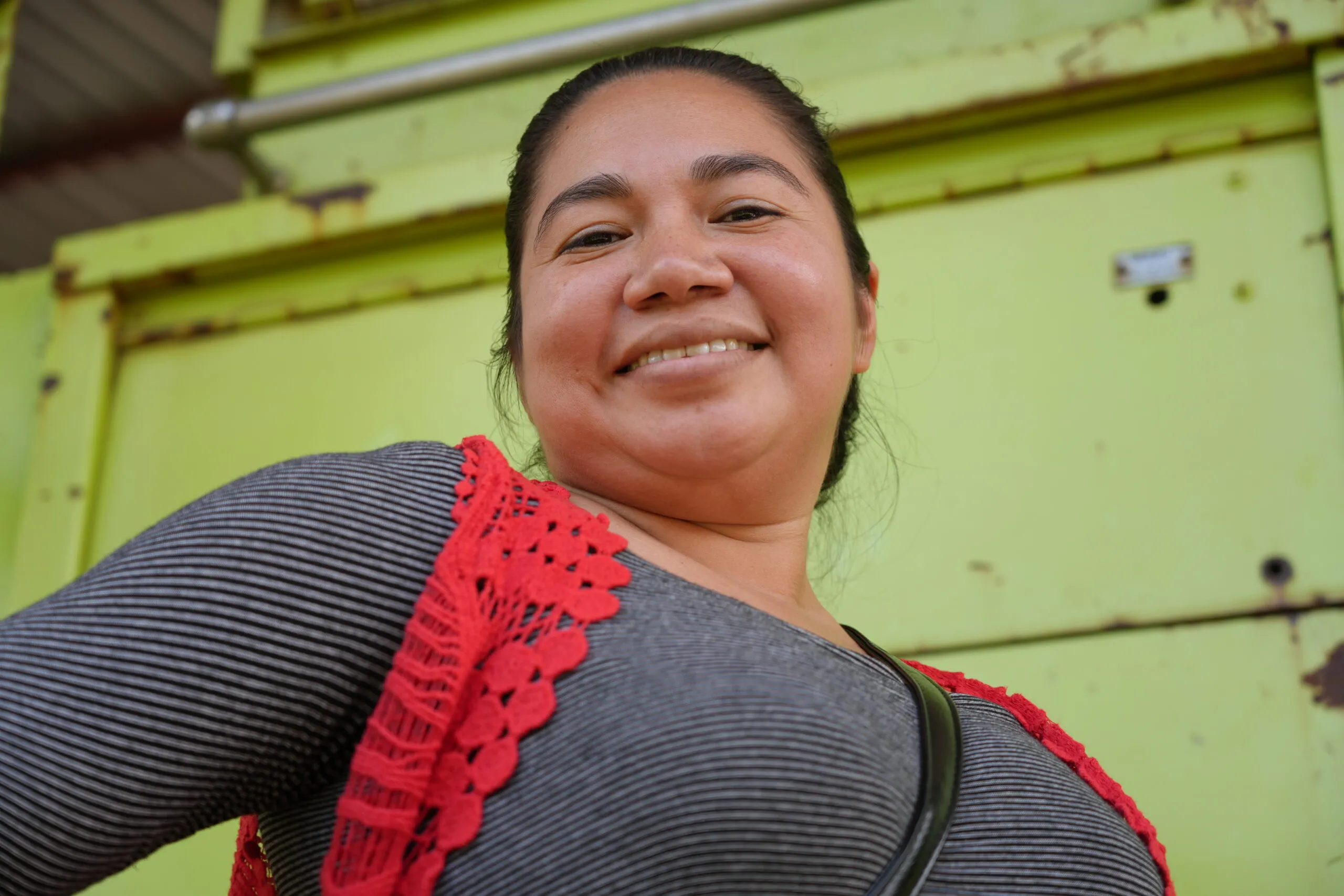The occasion? A graduation ceremony of sorts. Here alongside Honduras’ only lake, some 114 women entrepreneurs are commemorating the completion of the “Prosperous Futures” (Futuoros Prósperos) training program. They’ve leveled up their skills and, they hope, have taken a giant step toward better incomes and greater financial independence. In addition, they’ve also just received seed capital – sometimes actual seeds, but in other cases useful items like animal feed and product displays – to invest in their businesses.
Iris Zavala is one of the graduates. “I always had entrepreneurial material, I just didn’t know how to start,” says the soft-spoken 34-year-old, offering an easy smile while proudly holding her recently obtained diploma. “I had a small ice cream business that did not give me good results. I worked a lot, but I didn’t see the benefits.”



